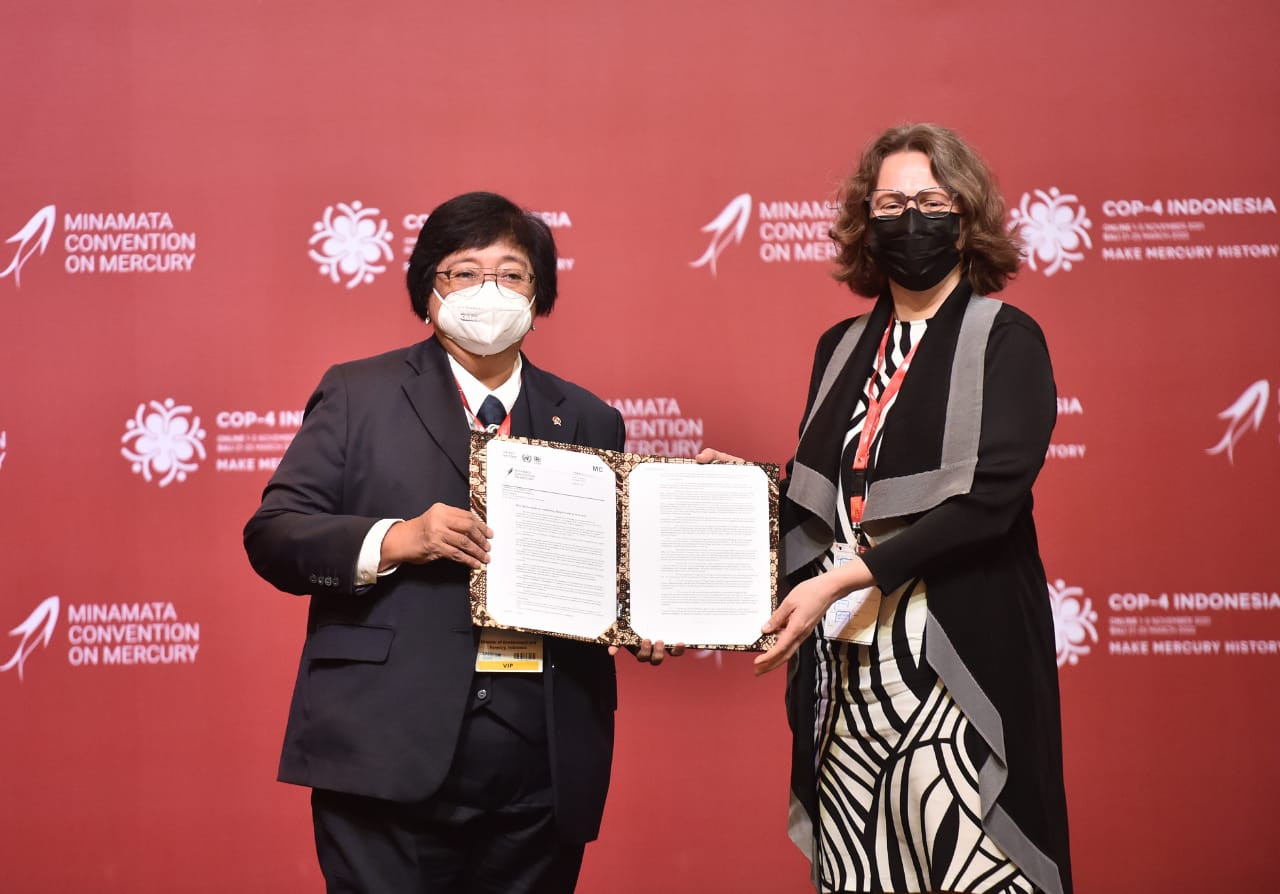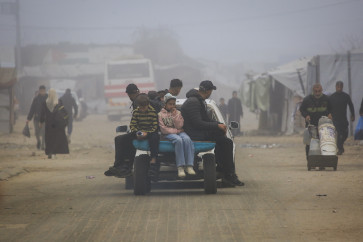Popular Reads
Top Results
Can't find what you're looking for?
View all search resultsPopular Reads
Top Results
Can't find what you're looking for?
View all search resultsRI declares fight against illegal mercury trade
The Minamata Convention is a global treaty that aims to protect human health and the environment from the adverse effects of mercury.
Change text size
Gift Premium Articles
to Anyone
I
ndonesia has introduced a global declaration that calls on parties to the Minamata Convention on Mercury to tackle illegal trade of mercury, with the hope that such a move would spur stronger international cooperation in the future.
The declaration was read in Nusa Dua, Bali, where Indonesia is hosting the fourth Conference of Parties (COP4) to the Minamata Convention on Mercury. The conference, which is being held from March 21 to 25, was preceded by online sessions held in November last year.
Indonesia has promoted the non-binding declaration, which is still under discussion and is hoped to be endorsed by parties to the convention, as one of the key outcomes as the COP4 host.
In addition, Indonesia is expected to lead discussions among parties to the convention about the review of annexes A and B, which list products that use mercury and manufacturing processes in which mercury or mercury compounds are used, during COP4.
The parties are also set to discuss the assessment criteria to evaluate the effectiveness of the implementation of the convention against its goals, which is referred to as effectiveness evaluation, during the conference.
The Minamata Convention, which entered into force in 2017, is a global treaty that aims to protect human health and the environment from the adverse effects of mercury. It is named after a city in Japan that became the epicenter of Minamata disease, a neurological disease caused by severe mercury poisoning, in the 1950s.
Urgent issue
Environment and Forestry Minister Siti Nurbaya Bakar emphasized the urgency for parties to the convention to address illegal trade of mercury, particularly in the artisanal and small-scale mining (ASGM) sector, which has been on the rise after trade of mercury was strictly regulated after the convention’s entry into force.
According to the United Nations Environment Program (UNEP), the illegal trade of mercury was estimated to reach between US$100 million and $215 million annually in 2020. The agency also estimated that around half of mercury used in the ASGM sector was acquired through illegal trade.
As one of the affected countries, Siti said Indonesia deemed it necessary to promote a multilateral framework in the fight against illegal mercury trade, given the transboundary nature of such activities.
Read also: Indonesia to focus on addressing unresolved issues as COP4 Minamata Convention host
“Against this backdrop, we have proposed a non-binding initiative called the ‘Bali Declaration on Combating Illegal Trade of Mercury’,” Siti said on Monday, adding that the declaration would be non-binding with short-, medium- and long-term goals.
“We aim to mainstream the issue and its urgency, followed by cooperation and collaboration, and later, hopefully, a global governance of illegal trade of mercury.”
Head of the Indonesian delegation at COP4, Muhsin Syihab, said the declaration was “born out of necessity” to strengthen cooperation against illegal trade of mercury. He added that prior to Monday’s introduction, the declaration had gone through “a thorough consultation process, in an inclusive and transparent manner.”
Like Siti, Muhsin also expressed hope that the declaration would spur stronger international cooperation in the fight against illegal mercury trade.
COP4 president Rosa Vivien Ratnawati said combating illegal trade of mercury was key in stopping mercury use in small-scale mining, and added that the problem should be tackled with cooperation among countries.
“Indonesia has officially banned the use of mercury in [small-scale] mining, but we still found some of its practices on the ground. [...] And they [miners] obtain mercury from sources outside the country,” said Rosa, who is also the Environment and Forestry Ministry’s waste management director general.
“This means that we need a global approach to stop this illegal trade of mercury together.”
Follow up
Responding to the declaration, environmental health organization Nexus 3 Foundation cofounder Yuyun Ismawati said it was important for parties to the Minamata Convention to follow up on the declaration with stronger policies to tackle the issue of illegal mercury trade.
“We need a deterrent for those trading in illegal mercury. If not, the problem will persist,” Yuyun said on the sidelines of COP4 on Monday.
Separately, Indonesian Forum for the Environment (WALHI) head campaigner Adi Djatmiko said after Indonesia secured the endorsements of parties for the declaration, the COP4 host needs to follow up on the declaration by showing its commitment to enforce the law to clamp down on the illegal use of mercury in its ASGM sector.
“This is a recurring problem of the Indonesian government’s participation in international law. A treaty may be ratified and a declaration pledged, but the efforts sometimes stopped there,” said Adi. (mrc)










